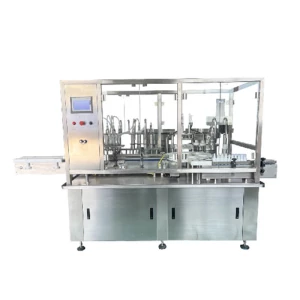The Ultimate Guide to Sourcing High-Quality Nuts from China in 2025
As global manufacturing continues to expand, China remains the world's leading producer of industrial fasteners, including various types of nuts. Whether you're in construction, automotive, or machinery manufacturing, understanding how to source quality nuts from China can significantly impact your project's success and cost-efficiency.
How to Find Reliable Nuts from China in 2025
The Chinese fastener market is projected to grow at 5.8% CAGR through 2025, making supplier verification more crucial than ever. Start by checking Alibaba's Gold Supplier status and request factory audit reports. Top manufacturers like Zhejiang Zhapu Industrial and Dongtai Precision Machinery typically have ISO 9001 certification and RoHS compliance.
Request material test certificates for each batch - reputable suppliers provide MTCs showing chemical composition and mechanical properties. For critical applications, consider third-party inspection services like SGS or Bureau Veritas to verify dimensions, thread accuracy, and surface treatment quality before shipment.
What Buyers Should Know Before Buying Nuts from China
1. Lead Times: Standard orders take 30-45 days including production and shipping. Rush orders (15-20 days) typically cost 20-30% more.
2. Payment Terms: 30% deposit with 70% balance before shipment is standard. New buyers may need LC at sight.
3. Minimum Order Quantity: Typically 1,000 pieces for standard sizes, but some factories accept 500-piece trial orders.
4. Customization: Chinese factories can produce non-standard sizes, special coatings (zinc-nickel, Dacromet), and unique markings.
Types of Nuts
Hex Nuts
The most common type, used with bolts and screws in general applications. Available in standard (ISO 4032) and heavy (DIN 934) patterns.
Lock Nuts
Feature nylon inserts or metal distortion to prevent loosening from vibration. Common in automotive and aerospace applications.
Wing Nuts
Designed for hand-tightening where tools aren't available. Frequently used in temporary installations and adjustable components.
Flange Nuts
Have integrated washers to distribute load and prevent surface damage. Popular in plumbing and electrical applications.
Functions and features of Nuts
Modern nuts incorporate several critical features:
- Thread Locking: Nylon patches or deformed threads create friction to resist vibration loosening
- Corrosion Resistance: Electroplating (zinc, nickel) or hot-dip galvanizing protects against rust
- High Strength: Grade 8 and 10 nuts withstand extreme loads in structural applications
- Temperature Resistance: Stainless steel (A2/A4) and titanium nuts perform in high-heat environments
Scenarios of Nuts
Construction: Structural steel connections use heavy hex nuts with ASTM A563 specifications
Automotive: Engine components require high-temperature flange nuts with prevailing torque
Electronics: Small metric nuts secure circuit boards and components
Renewable Energy: Wind turbine assemblies use large-diameter nuts with special coatings
How to Choose Nuts
1. Material Match: Pair nut material with the bolt (e.g., stainless with stainless)
2. Grade Compatibility: Nut strength should equal or exceed the bolt grade
3. Environmental Factors: Choose coatings based on moisture, chemicals, and temperature
4. Thread Type: Confirm metric (ISO) or imperial (UNC/UNF) measurements
5. Certification Needs: Some industries require specific standards (ASME, DIN, JIS)
Nuts Q & A
Q: What's the price range for nuts from China?
A: Standard hex nuts cost $0.02-$0.15 per piece depending on size and material. Specialized nuts (lock, flange) range $0.10-$0.50.
Q: How do I prevent buying counterfeit nuts?
A: Always request material certificates, check manufacturer markings, and consider third-party inspection for critical applications.
Q: What's the difference between Grade 5 and Grade 8 nuts?
A: Grade 8 nuts have higher tensile strength (150 ksi vs 120 ksi) and are used in high-stress applications.
Q: Can I get nuts with custom logos or markings?
A: Yes, most Chinese manufacturers offer custom stamping for MOQs over 10,000 pieces.
Q: What's the best coating for marine environments?
A: Hot-dip galvanizing or Dacromet coating provides the best saltwater corrosion resistance.




 standup pouch filling machine,doypack filling machine,weighing filling machine ,pharmaceutical filling machine,bag filling machine,bottle filling machine
standup pouch filling machine,doypack filling machine,weighing filling machine ,pharmaceutical filling machine,bag filling machine,bottle filling machine
























































































